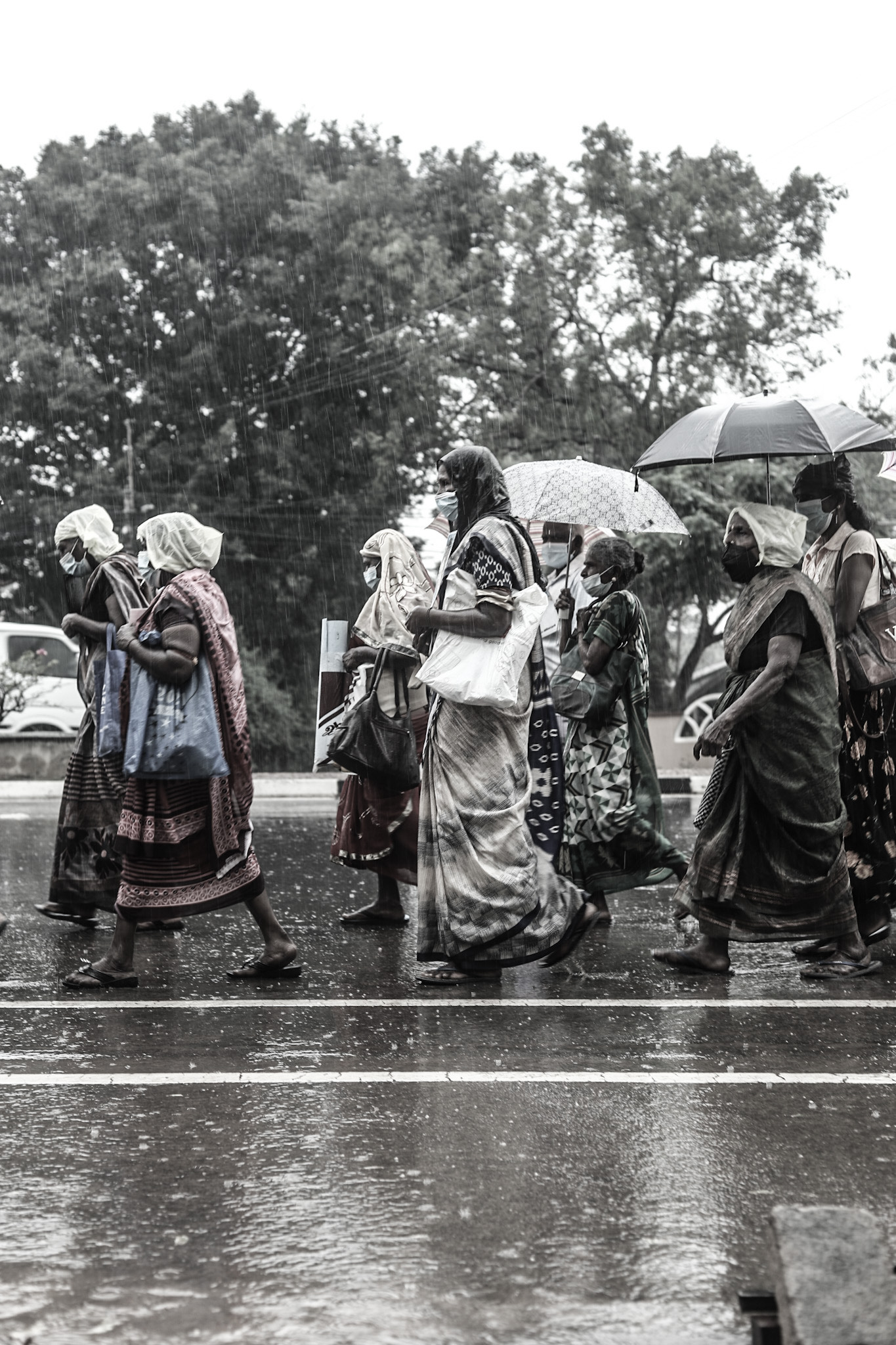
Tamil families of the disappeared marching through Kilinochchi on Sunday.
The European Union announced the launch of a new initiative that will see approximately 4 billion rupees of funding for Sri Lanka’s much criticised justice sector, even as Tamil families of the disappeared slammed the state’s unwillingness to investigate the forcible disappearances of their loved ones.
The new Justice Reform (JURE) Programme consists of EUR 18 million (approx. LKR 4 billion) of funding from the EU and EUR 1 million (approx. LKR 225 million) from the United Nations.
The program will reportedly see a “holistic package of support to strengthen inclusive access to justice, improve transparency and accountability in the sector as well as enhance quality and efficient services delivery,” according to an EU press release.
But for Tamils across the North-East and around the world, the latest program will do little to achieve those goals. Yesterday in Kilinochchi, Tamil families of the disappeared marked 5 years of continuous protest with a rally through the streets, reiterating their demand for an international justice mechanism. The families, mainly headed by women, marched despite the heavy rainfall and chanted slogans calling for international accountability.
The families are amongst the many still searching for justice and accountability for mass atrocities committed during the final phases of the armed conflict in 2009. Alongside enforced disappearances, there were otherwise spread abuses including the shelling of hospitals and sexual violence. To this date, no one has been held to account, whilst Sri Lanka’s president has repeatedly stated he would not allow any prosecution of soldiers.
At the launch of the program in Colombo today, Sri Lanka’s controversial justice minister Ali Sabry hailed the international support that the domestic justice mechanisms would be receiving.
“We need to strengthen the administration of justice in Sri Lanka to uphold the rule of law whilst ensuring an independent judiciary,” he said.
“This task would be difficult to achieve without a modern mechanism and support from development partners. This programme will certainly pave the way, and I am happy that European Union, UNDP and UNICEF are partnering with us in achieving this goal.”
Sabry himself is a controversial figure, who recently called for the criminalisation of strike action and called on the war crimes-accused president to “act a bit ruthlessly”.
He was part of the Sri Lankan justice ministry’s latest “mobile” project which met with significant backlash across the North-East last month. Sabry had hailed the initiative, which was part of a move by the government to deflect growing international pressure over accountability for atrocities committed during the armed conflict.
“It is strength to face the challenges posed by the international community and that having a strong local mechanism for the problems in the country is a good message to the international community as well,” he told reporters.
According to the Daily News, he added that the “main focus was on the issue of missing persons during the civil war and if there had any injustice to the families of the missing persons, they hoped to issue a death certificate or compensation to them”.
.jpg)
Protesting mothers in Vavuniya last month.
However in Mullaitivu and Vauvniya, Tamil families of the disappeared rejected the mobile initiative and demonstrated outside, demanding once more that an international mechanism is enacted.
Read more: Tears amidst the rainfall – Tamil families of disappeared demand answers in Mullaitivu
Read more: Sri Lankan police push back Tamil mothers of the disappeared protest in Vavuniya
“The European Union’s funding is significant and shows how crucial it considers its partnership with Sri Lanka, UNDP and UNICEF to support home-grown reforms and institutions,” said Ambassador to the European Union in Sri Lanka, Denis Chaibi earlier today.
But it is those “home-grown” institutions that have been criticised for their decades of delay and unwillingness to serve justice.
“Noamount of money will fix a system that has wilfully denied these families answers,” tweeted Dharsha Jegatheeswaran, co-director at the Jaffna-based Adayaalam Centre for Policy Research.
“This is just more whitewashing of impunity.”
